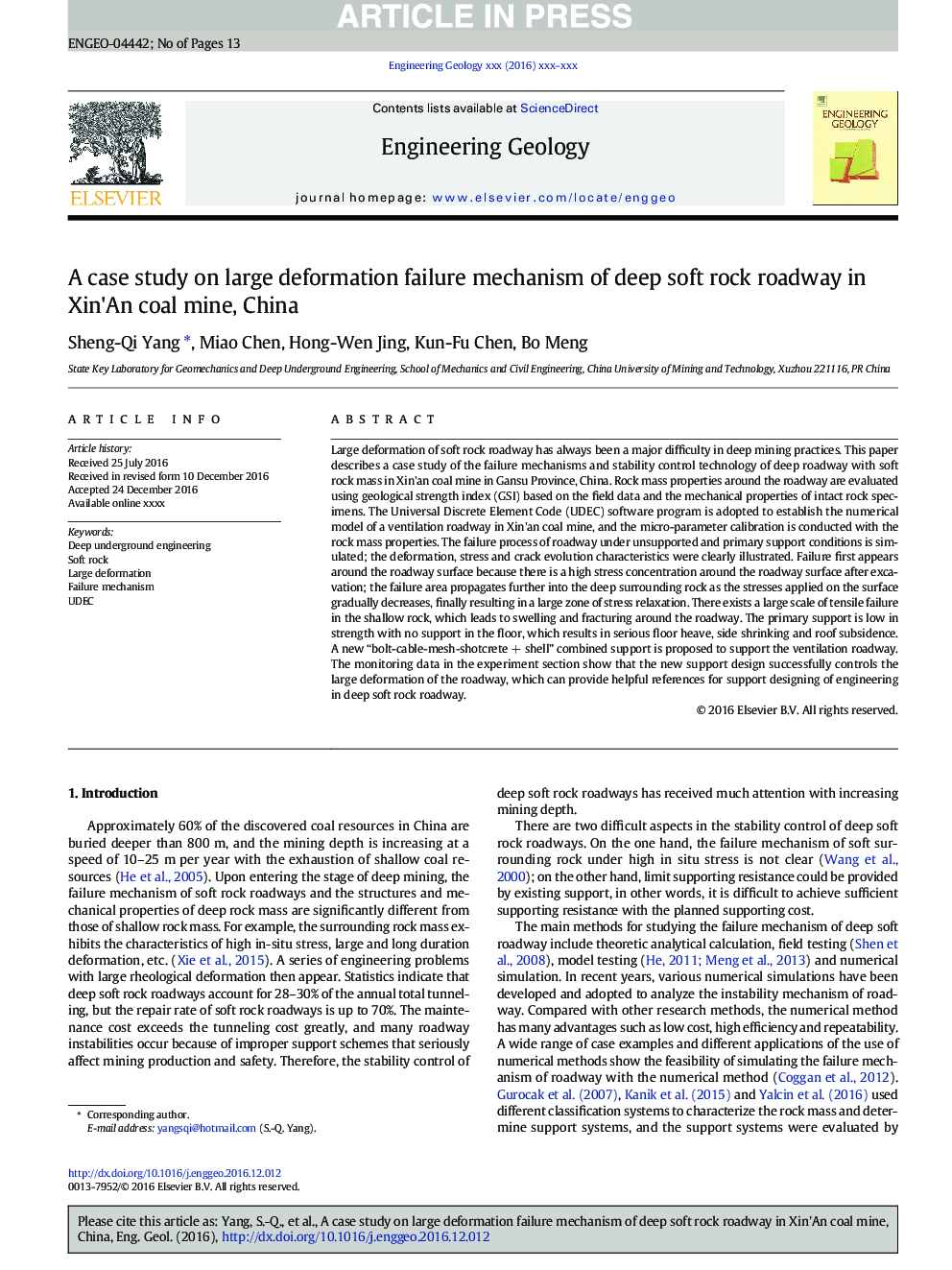| Article ID | Journal | Published Year | Pages | File Type |
|---|---|---|---|---|
| 5787680 | Engineering Geology | 2017 | 13 Pages |
Abstract
Large deformation of soft rock roadway has always been a major difficulty in deep mining practices. This paper describes a case study of the failure mechanisms and stability control technology of deep roadway with soft rock mass in Xin'an coal mine in Gansu Province, China. Rock mass properties around the roadway are evaluated using geological strength index (GSI) based on the field data and the mechanical properties of intact rock specimens. The Universal Discrete Element Code (UDEC) software program is adopted to establish the numerical model of a ventilation roadway in Xin'an coal mine, and the micro-parameter calibration is conducted with the rock mass properties. The failure process of roadway under unsupported and primary support conditions is simulated; the deformation, stress and crack evolution characteristics were clearly illustrated. Failure first appears around the roadway surface because there is a high stress concentration around the roadway surface after excavation; the failure area propagates further into the deep surrounding rock as the stresses applied on the surface gradually decreases, finally resulting in a large zone of stress relaxation. There exists a large scale of tensile failure in the shallow rock, which leads to swelling and fracturing around the roadway. The primary support is low in strength with no support in the floor, which results in serious floor heave, side shrinking and roof subsidence. A new “bolt-cable-mesh-shotcrete + shell” combined support is proposed to support the ventilation roadway. The monitoring data in the experiment section show that the new support design successfully controls the large deformation of the roadway, which can provide helpful references for support designing of engineering in deep soft rock roadway.
Related Topics
Physical Sciences and Engineering
Earth and Planetary Sciences
Geotechnical Engineering and Engineering Geology
Authors
Sheng-Qi Yang, Miao Chen, Hong-Wen Jing, Kun-Fu Chen, Bo Meng,
